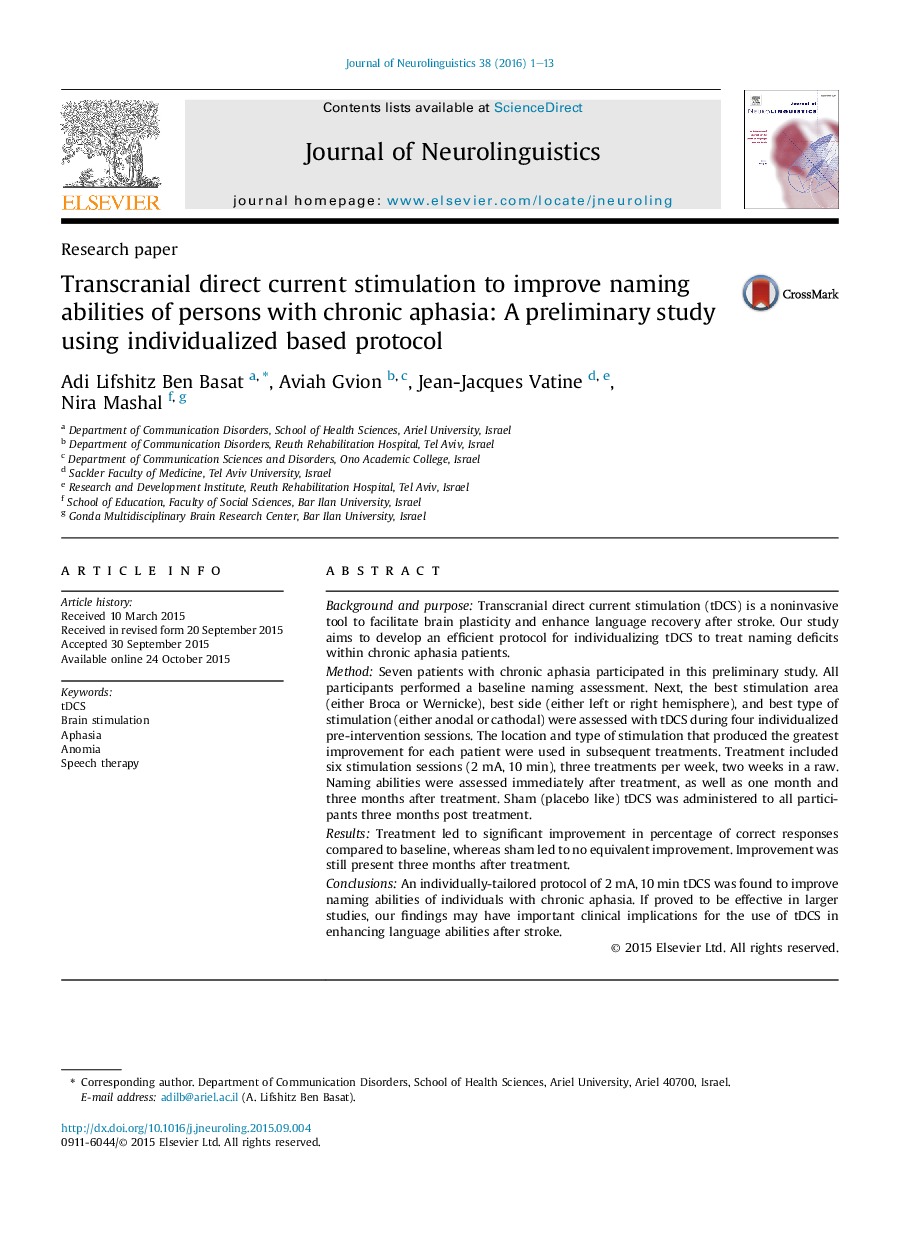| Article ID | Journal | Published Year | Pages | File Type |
|---|---|---|---|---|
| 911734 | Journal of Neurolinguistics | 2016 | 13 Pages |
•We tested individualized based tDCS protocol to improve naming in aphasic patients.•Site and type of stimulation were individualized for each of the 7 aphasic patients.•All participants got both active and sham (placebo-like) stimulations.•Significant improvement in naming was found after treatment and not after sham.•The significant improvement lasted one and three months post treatment.
Background and purposeTranscranial direct current stimulation (tDCS) is a noninvasive tool to facilitate brain plasticity and enhance language recovery after stroke. Our study aims to develop an efficient protocol for individualizing tDCS to treat naming deficits within chronic aphasia patients.MethodSeven patients with chronic aphasia participated in this preliminary study. All participants performed a baseline naming assessment. Next, the best stimulation area (either Broca or Wernicke), best side (either left or right hemisphere), and best type of stimulation (either anodal or cathodal) were assessed with tDCS during four individualized pre-intervention sessions. The location and type of stimulation that produced the greatest improvement for each patient were used in subsequent treatments. Treatment included six stimulation sessions (2 mA, 10 min), three treatments per week, two weeks in a raw. Naming abilities were assessed immediately after treatment, as well as one month and three months after treatment. Sham (placebo like) tDCS was administered to all participants three months post treatment.ResultsTreatment led to significant improvement in percentage of correct responses compared to baseline, whereas sham led to no equivalent improvement. Improvement was still present three months after treatment.ConclusionsAn individually-tailored protocol of 2 mA, 10 min tDCS was found to improve naming abilities of individuals with chronic aphasia. If proved to be effective in larger studies, our findings may have important clinical implications for the use of tDCS in enhancing language abilities after stroke.
